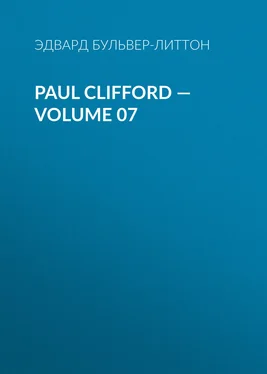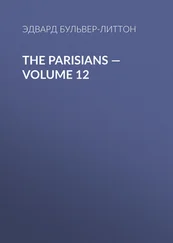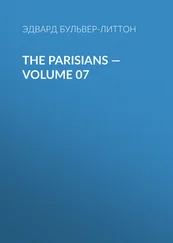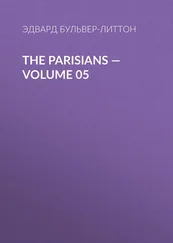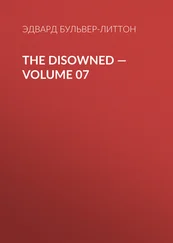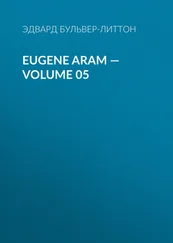Эдвард Бульвер-Литтон - Paul Clifford — Volume 07
Здесь есть возможность читать онлайн «Эдвард Бульвер-Литтон - Paul Clifford — Volume 07» — ознакомительный отрывок электронной книги совершенно бесплатно, а после прочтения отрывка купить полную версию. В некоторых случаях можно слушать аудио, скачать через торрент в формате fb2 и присутствует краткое содержание. Жанр: foreign_prose, literature_19, Европейская старинная литература, foreign_antique, на английском языке. Описание произведения, (предисловие) а так же отзывы посетителей доступны на портале библиотеки ЛибКат.
- Название:Paul Clifford — Volume 07
- Автор:
- Жанр:
- Год:неизвестен
- ISBN:нет данных
- Рейтинг книги:4 / 5. Голосов: 1
-
Избранное:Добавить в избранное
- Отзывы:
-
Ваша оценка:
- 80
- 1
- 2
- 3
- 4
- 5
Paul Clifford — Volume 07: краткое содержание, описание и аннотация
Предлагаем к чтению аннотацию, описание, краткое содержание или предисловие (зависит от того, что написал сам автор книги «Paul Clifford — Volume 07»). Если вы не нашли необходимую информацию о книге — напишите в комментариях, мы постараемся отыскать её.
Paul Clifford — Volume 07 — читать онлайн ознакомительный отрывок
Ниже представлен текст книги, разбитый по страницам. Система сохранения места последней прочитанной страницы, позволяет с удобством читать онлайн бесплатно книгу «Paul Clifford — Volume 07», без необходимости каждый раз заново искать на чём Вы остановились. Поставьте закладку, и сможете в любой момент перейти на страницу, на которой закончили чтение.
Интервал:
Закладка:
"Bear up, my dear friend," continued Tomlinson; "bear up against your present afflictions. What, to a man who fortifies himself by reason and by reflection on the shortness of life, are the little calamities of the body? What is imprisonment or persecution or cold or hunger? By the by, you did not forget to put the sandwiches into my coat-pocket!"
"Hush!" whispered Ned, and he moved on involuntarily; "I see a man at the other end of the street."
"Let us quicken our pace," said Tomlinson; and the pair proceeded towards the river.
"And now," began Ned, who thought he might as well say something about himself; for hitherto Augustus, in the ardour of his friendship, had been only discussing his own plans,—"and now,—that is to say, when I leave you,—I shall hasten to dive for shelter, until the storm blows over. I don't much like living in a cellar and wearing a smock frock; but those concealments have something interesting in them, after all! The safest and snuggest place I know of is the Pays Bas, about Thames Court; so I think of hiring an apartment underground, and taking my meals at poor Lovett's old quarters, the Mug,—the police will never dream of looking in these vulgar haunts for a man of my fashion."
"You cannot then tear yourself from England?" said Tomlinson.
"No, hang it! the fellows are so cursed unmanly on the other side of the water. I hate their wine and their parley woo. Besides, there is no fun there."
Tomlinson, who was absorbed in his own thoughts, made no comment on his friend's excellent reasons against travel; and the pair now approached the brink of the river. A boat was in waiting to receive and conduct to the vessel in which he had taken his place for Calais the illustrious emigrant. But as Tomlinson's eye fell suddenly on the rude boatmen and the little boat which were to bear him away from his native land; as he glanced, too, across the blue waters, which a brisk wind wildly agitated, and thought how much rougher it would be at sea, where "his soul" invariably "sickened at the heaving wave,"—a whole tide of deep and sorrowful emotions rushed upon him.
He turned away. The spot on which he stood was a piece of ground to be let (as a board proclaimed) upon a building lease; below, descended the steps which were to conduct him to the boat; around, the desolate space allowed him to see in far and broad extent the spires and domes and chimneys of the great city whose inhabitants he might never plunder more. As he looked and looked, the tears started to his eyes, and with a gust of enthusiasm, little consonant with his temperate and philosophical character, he lifted his right hand from his black breeches-pocket, and burst into the following farewell to the metropolis of his native shores:—
"Farewell, my beloved London, farewell! Where shall I ever find a city like you? Never, till now, did I feel how inexpressibly dear you were to me. You have been my father and my brother and my mistress and my tailor and my shoemaker and my hatter and my cook and my wine-merchant! You and I never misunderstood each other. I did not grumble when I saw what fine houses and good strong boxes you gave to other men. No! I rejoiced at their prosperity. I delighted to see a rich man,—my only disappointment was in stumbling on a poor one. You gave riches to my neighbours; but, O generous London, you gave those neighbours to me! Magnificent streets, all Christian virtues abide within you! Charity is as common as smoke! Where, in what corner of the habitable world, shall I find human beings with so many superfluities? Where shall I so easily decoy, from benevolent credulity, those superfluities to myself? Heaven only knows, my dear, dear, darling London, what I lose in you! O public charities! O public institutions! O banks that belie mathematical axioms and make lots out of nothing! O ancient constitution always to be questioned! O modern improvements that never answer! O speculations! O companies! O usury laws which guard against usurers, by making as many as possible! O churches in which no one profits, save the parson, and the old women that let pews of an evening! O superb theatres, too small for parks, too enormous for houses, which exclude comedy and comfort, and have a monopoly for performing nonsense gigantically! O houses of plaster, built in a day! O palaces four yards high, with a dome in the middle, meant to be invisible!
[We must not suppose this apostrophe to be an anachronism. Tomlinson, Of course, refers to some palace of his day; one of the boxes—Christmas boxes—given to the king by his economical nation of shopkeepers. We suppose it is either pulled down or blown down long ago; it is doubtless forgotten by this time, except by antiquaries. Nothing is so ephemeral as great houses built by the people. Your kings play the deuce with their playthings!]
"O shops worth thousands, and O shopkeepers not worth a shilling! O system of credit by which beggars are princes, and princes are beggars! O imprisonment for debt, which lets the mare be stolen, and then locks up the bridle! O sharpers, bubbles, senators, beaux, taverns, brothels, clubs, houses private and public!—-O LONDON, in a word, receive my last adieu! Long may you flourish in peace and plenteousness! May your knaves be witty, and your fools be rich! May you alter only two things, —your damnable tricks of transportation and hanging! Those are your sole faults; but for those I would never desert you. Adieu!"
Here Tomlinson averted his head, and then hastily shaking the hand of Long Ned with a tremulous and warm grasp, he hurried down the stairs and entered the boat. Ned remained motionless for some moments, following him with his eyes as he sat at the end of the boat, waving a white pocket-handkerchief. At length a line of barges snatched him from the sight of the lingerer; and Ned, slowly turning away, muttered,—"Yes, I have always heard that Dame Lobkins's was the safest asylum for misfortune like mine. I will go forthwith in search of a lodging, and to-morrow I will make my breakfast at the Mug!"
Be it our pleasing task, dear reader, to forestall the good robber, and return, at the hour of sunrise on the day following Tomlinson's departure, to the scene at which our story commenced. We are now once more at the house of Mrs. Margery Lobkins.
The room which served so many purposes was still the same as when Paul turned it into the arena of his mischievous pranks. The dresser, with its shelves of mingled delf and pewter, occupied its ancient and important station. Only it might be noticed that the pewter was more dull than of yore, and that sundry cracks made their erratic wanderings over the yellow surface of the delf. The eye of the mistress had become less keen than heretofore, and the care of the hand maid had, of necessity, relaxed. The tall clock still ticked in monotonous warning; the blanket-screen, haply innocent of soap since we last described it, many-storied and polyballaded, still unfolded its ample leaves "rich with the spoils of time;" the spit and the musket yet hung from the wall in amicable proximation. And the long, smooth form, "with many a holy text thereon bestrewn," still afforded rest to the weary traveller, and an object to the vacant stare of Mrs. Margery Lobkins, as she lolled in her opposite seat and forgot the world. But poor Piggy Lob!—-there was the alteration! The soul of the woman was gone; the spirit had evaporated from the human bottle! She sat, with open mouth and glassy eye, in her chair, sidling herself to and fro, with the low, peevish sound of fretful age and bodily pain; sometimes this querulous murmur sharpened into a shrill but unmeaning scold: "There now, you gallows-bird! you has taken the swipes without chalking; you wants to cheat the poor widow; but I sees you, I does! Providence protects the aged and the innocent—Oh, oh! these twinges will be the death o' me. Where's Martha? You jade, you! you wiperous hussy, bring the tape; does n't you see how I suffers? Has you no bowels, to let a poor Christian cretur perish for want o' help! That's with 'em, that's the way! No one cares for I now,—no one has respect for the gray 'airs of the old!" And then the voice dwindled into the whimpering "tenor of its way."
Читать дальшеИнтервал:
Закладка:
Похожие книги на «Paul Clifford — Volume 07»
Представляем Вашему вниманию похожие книги на «Paul Clifford — Volume 07» списком для выбора. Мы отобрали схожую по названию и смыслу литературу в надежде предоставить читателям больше вариантов отыскать новые, интересные, ещё непрочитанные произведения.
Обсуждение, отзывы о книге «Paul Clifford — Volume 07» и просто собственные мнения читателей. Оставьте ваши комментарии, напишите, что Вы думаете о произведении, его смысле или главных героях. Укажите что конкретно понравилось, а что нет, и почему Вы так считаете.
